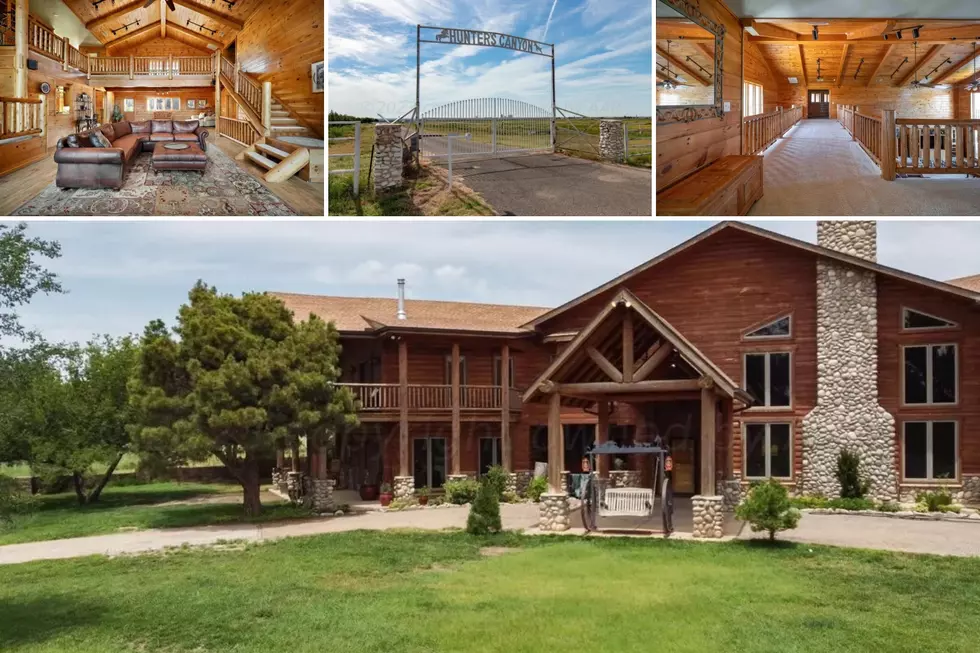
READ: Teacher’s Moving Speech on Banned Books to Canyon School Board
Editor's Note: The Canyon Independent School District recently made some important decisions regarding the school curriculum and what teachers could consider appropriate and inappropriate materials to use in preparing their lessons. Many members of the community have offered essential and thought-provoking points in the time leading up to the decision, including Rachel Huddleston, a teacher for CISD.
While we deeply respect the school board and the difficult decisions they are faced with daily, we have decided to publish Huddleston's prepared speech in full below. We have chosen to do so as it touches upon many critical points that parents and students alike must grapple with on a daily basis--today as well as tomorrow. If you would like to submit any letters with questions, concerns, or op-ed, please email the editor here.
Infinite thanks to Rachel Huddleston for allowing us to re-print her thoughtful speech in full.
Last night I chose to speak to the CISD board as both a teacher and parent. I was only able to speak for 3 minutes, so I had to cut my 2 page speech into about half a page (full text below). Despite the ongoing debates about what is and isn't appropriate for our students to read, as far as I know, I'm the only teacher to speak, yet this is an issue important to us all. ALL of our students and their cultures and experiences deserve to be represented in our literature. We cannot censor based on our own personal beliefs or feelings. That is dangerous territory. Fellow educators, please let your voice be heard. The board, many administrators, and parents are not in our classrooms every day, so they don't see firsthand how diverse our classrooms are, nor the issues that our students are going through, or how we teach. We need to bring our experiences forward, and voice our concerns. If we don't, how can we be upset when they pull books from our rooms? Below are my unabridged comments to the board. It's long, but I feel my comments were necessary.
"Good evening. My name is Rachel Huddleston. I have two children in CISD schools, am an alumnus of Randall High, and have returned to teach 9th grade English. I also serve on the Instructional Resource Committee.
I would first like to thank the board for listening to the community and taking the time to thoroughly examine the issues before making difficult decisions in this challenging time.
Near the end of the 2021 school year, I received an incredible gift: An honorary Randall High School diploma, 20 years after a move just months before graduation prevented me from getting that diploma. Randall High - Canyon ISD - is my home.
As a first-year teacher in 2020, I made the gamble to only apply to Canyon ISD because this district and the school I work in are so special. It was worth the risk of not finding a job and needing to substitute for one more year. The day I received that phone call from Mr. Singleton with a job offer was one of the top moments in my life, and I pour my heart and soul into teaching. For me, teaching is more than a job. It is a passion. If you ask my students what makes me happy, I hope most of them will reply with, “We do. We make her happy.” I don’t take my role as a teacher lightly, which is why this next part is so hard.
I feel like recent events have hindered my ability to teach effectively, and that breaks my heart. Like many other teachers - particularly ELA teachers - I am a little scared to teach right now. We are afraid of topics that naturally come up in student-led conversations. Students want to discuss current, challenging issues. But we are afraid to look at themes that are in modern and classic literature because they might be deemed inappropriate or that we will be seen as having an “agenda.” We are afraid to use books that represent all of our students. *We are afraid to give our students books. Let me say that one more time. We, the English teachers of this district, state, and country, are afraid to give our students books and have them read.*
I keep hearing how our schools should reflect our community standards, and I wholeheartedly agree. However, our community has changed in the last 30+ years, and we don’t only represent the city of Canyon anymore. The makeup of our community is diverse. We have over 100 denominations of Christians, each with their own set of beliefs; we have Muslims, Buddhists, Sikhs, Hindus, atheists, and dozens of other belief systems. We have students who are white, black, Hispanic, Asian, Afgan, Native American, Indian, and more. We have exchange students from overseas; we have refugees; students who have seen gang violence; students who have witnessed terrorism firsthand; and students who have seen poverty, bullying, and abuse.
Our community is diverse, and our education should reflect that diversity. We are not a homogenous community owned by one group. This is our community, and we *all* deserve to be represented in our public schools. Removing resources and restricting topics and curricula may appease a small group of parents, but it will also limit the freedom of all the other parents, teachers, and students.
There are several local charter schools, homeschooling groups, online, and hybrid options that cater to the various needs and desires of the families who may want a more specialized education for their students, but our public schools must remain free to teach to our current societal needs, and not be restricted to the ideals of a single group. Regardless of our personal feelings or beliefs, we have an obligation to include every student in our district and allow them to see themselves and their cultures represented in literature and curriculum.
We have LGBT students. We have undocumented students, students who are heavily addicted to drugs (or have parents or family members who are), students who have been abused, assaulted, in jail, in gangs, shot, lost their parents, or are homeless. We have students of color who have felt the need to transfer out because of how they are treated. We have an obligation to those students. They matter, and their stories matter, and frankly, we could all learn a lot from them if we weren’t so uncomfortable reading about their experiences.
Last year, The Glass Castle was removed from our shelves despite being a true memoir and being listed on several college and AP reading lists recommended for high school. The Glass Castle represents the life some of our students live right now, and removing it sends the message that their experience doesn’t matter. That they don’t matter. When we remove books because of certain passages or individual words, we make a moral judgment, not an educated one. Some say that teachers have an agenda or that we are indoctrinating students. We don’t, and we can’t. My goal is to create lifelong readers, writers, and thinkers. I want to educate students so they may be successful in a diverse world. That’s the only agenda I have. If I had the power to indoctrinate students, I’d have more assignments turned in on time, and students would capitalize their “I”s.
As we examine our resources, we must reiterate that they should be read as whole texts and not pieced into out-of-context phrases or words. Word counts and brief excerpts from novels don’t give us the full scope of a text, and I could cherry-pick any classic literature if I wanted to find them offensive as well. We lose the author's message when we remove a word or section from a novel. Many of our standards revolve around “author’s craft,” which has us examine why an author chose to write in the way they did. Why did they use a specific word or metaphor, go into various topics, or use a certain tone? How do those things contribute to the text as a whole? If we look at most classic novels, they were considered problematic or controversial when they were written. They were full of offensive language and political criticism or persuasion. That’s literature! We write about the issues of our current culture. We write about the things that make us feel.
Governments throughout history have banned or removed books. One of the oldest classic English texts, The Canterbury Tales, was once banned by the US Postal Service for being too obscene. Several Shakespeare plays have been banned or restricted due to homosexuality, witchcraft, anti-semitism, and obscenity. If we are looking for offensive content, we will find it anywhere. If we remove books - any books - we set a dangerous precedent. According to a recent national survey by the American Library Association, over 70% of Americans don’t want to see our schools remove books from classrooms or libraries. In our own community, we are also widely opposed to those measures.
My son was in 5th grade at Pinnacle last year, and I would like to thank his English teacher for providing him with thought-provoking, culturally relevant, diverse books to read. He read several books last year that were culturally diverse, thought-provoking, and excellent conversation starters. Please, for the sake of my students and my children, don’t remove books from our classrooms. Allow them full representation in books and other curricula.
Thank you."
Below are examples of “Inappropriate” literature in the past. Most are considered classics now.
Romeo & Juliet (Shakespeare): Traditional 9th grade text. Romeo and Juliet has several obscenities (in 16th century English), is full of teenage boy sex and penis jokes, gang violence, murder, rebellion against parents, premarital sex, and a double suicide.
Catcher in the Rye (Salinger)
To Kill a Mockingbird (Lee)
Twelfth Night (Shakespeare)
Lord of the Flies (Golding)
1984 (Orwell)
The Great Gatsby (Fitzgerald)
The Jungle(Sinclair)
The Adventures of Huckleberry Finn (Twain)
The Grapes of Wrath (Steinbeck)
Beloved (Morrison)
Of Mice and Men (Steinbeck)
Animal Farm (Orwell)
Brave New World (Huxley)
As I Lay Dying (Falkner)
Gone with the Wind (Mitchell)
One Flew Over the Cuckoo’s Nest (Kesey)
Merchant of Venice (Shakespeare)
Macbeth (Shakespeare)
The Prince (Machiavelli)
The Call of the Wild (London)
White Fang (London)
The Wizard of Oz (Baum)
Alice's Adventures in Wonderland (Carroll)
Sherlock Holmes: A Study in Scarlet & The Sign of the Four (Doyle)
Ulysses (Joyce)
The Canterbury Tales (Chaucer)
Jane Eyre (Bronte)
A Modest Proposal (Swift)
Google Answers the Top 10 Questions About Amarillo
Here Are 25 Of Amarillo's Best Yoga Studios
More From KISS FM 96.9









